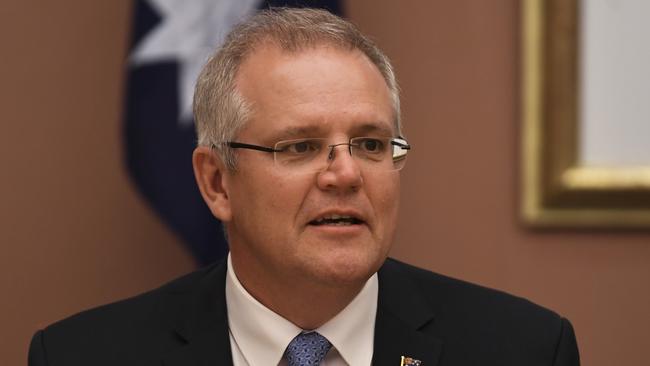Tim Minchin’s attack misses the mark and the point
TAKING aim at the faith of our newest Prime Minister shows that when it comes to holding politicians accountable, Tim Minchin still has a way to go, writes James Morrow.
Rendezview
Don't miss out on the headlines from Rendezview. Followed categories will be added to My News.
PEOPLE often make the mistake of believing that just because someone is an expert in one field, they are automatically an expert in everything.
But when you think about it, the exact opposite is true.
For example, if you needed a blockage in your coronary arteries cleared, the first person you’d go to would be a cardiologist. That same doctor, however, would probably be the last person you’d call if you needed someone to install a remote control garage door.
This rule goes double for entertainers and politics: For some reason, we too often think that the opinions of those who can command an audience should be given extra weight when it comes to who runs the country. Yet if anything, the opposite is true.
Take Tim Minchin (please).
Yesterday on Twitter, the self-identifying comedian lobbed into the fray, hammering Scott Morrison for his religious beliefs by tweeting: “Our new Aussie PM — who was NOT elected by our very secular population — holds really rather whacky supernatural beliefs which demonstrably affect his policies. The gentle ribbing by Tonightly is the very least the ABC should be doing.”
Forget making the show-offy point that we don’t directly elect prime ministers in this country. In less than 240 characters, Minchin invented a new variation on this rule about the limits of expertise.
Namely, don’t call on someone best known for writing a novelty song about redheads if you need a point of theology dissected or political science explained.

Now this is not necessarily to pick on Minchin — though his previous work suggests he has no qualms about picking on Christians, even if he appears more reticent when it comes to other faiths.
Rather, it is to point out the lunacy of the fundamentalist atheists who have, since Morrison got the keys to the Lodge, been losing their supposedly hyper-rational minds over the fact that the new PM spends his Sunday mornings at church rather than brunch.
For them, when it comes to politics (or any other position of responsibility) their mantra seems to be, “no faithful need apply”.
To take the logic of Minchin and his ilk to its not far off extreme, our government should not be run by anyone who believes in anything deeper than Facebook memes about being kind and the latest irreproducible studies of social scientists convinced they know what’s best for us.
And that’s if we’re lucky.
But of course, these attacks on Morrison’s religion are pretty one-eyed: It’s hard to recall anyone on the Left objecting so strenuously when openly-believing Laborites Kevin Rudd (Christian) or Kristina Keneally (Catholic) took office.
And in fact, one’s “whacky supernatural beliefs” tend to be a poor predictor of how people act in office or at the polling station.

Julia Gillard was a confirmed atheist who may as well have been sworn in on a well-thumbed edition of The Collected Works of Richard Dawkins.
Yet in government she counted Puritanical plain packaging laws as a great achievement and maintained that marriage was an institution to be enjoyed only by a man and a woman.
Malcolm Turnbull, meanwhile, converted to Catholicism midlife only to become prime minister and usher in same-sex marriage — a step too far even for the uber-liberal Pope Francis.
As it is for politicians it is for people. This week The New Yorker magazine published a long essay about young evangelicals in America who run counter to the young Ned Flanders stereotype and thrash around to Christian rock songs about helping refugees and tearing down borders.
Would Minchin be alarmed if any of them grew up to one day move into the White House?
Similarly, many of the most politically conservative commentators employed by the publisher of this newspaper are staunch atheists.
All of which suggests we need another rule to go along with the one about what experts do and don’t know.
We could call it Minchin’s Law: If you’re criticising someone for what you think they believe rather than what they’re actually doing, your opinion ain’t worth a song.
James Morrow is opinion editor of The Daily Telegraph.
Originally published as Tim Minchin’s attack misses the mark and the point



